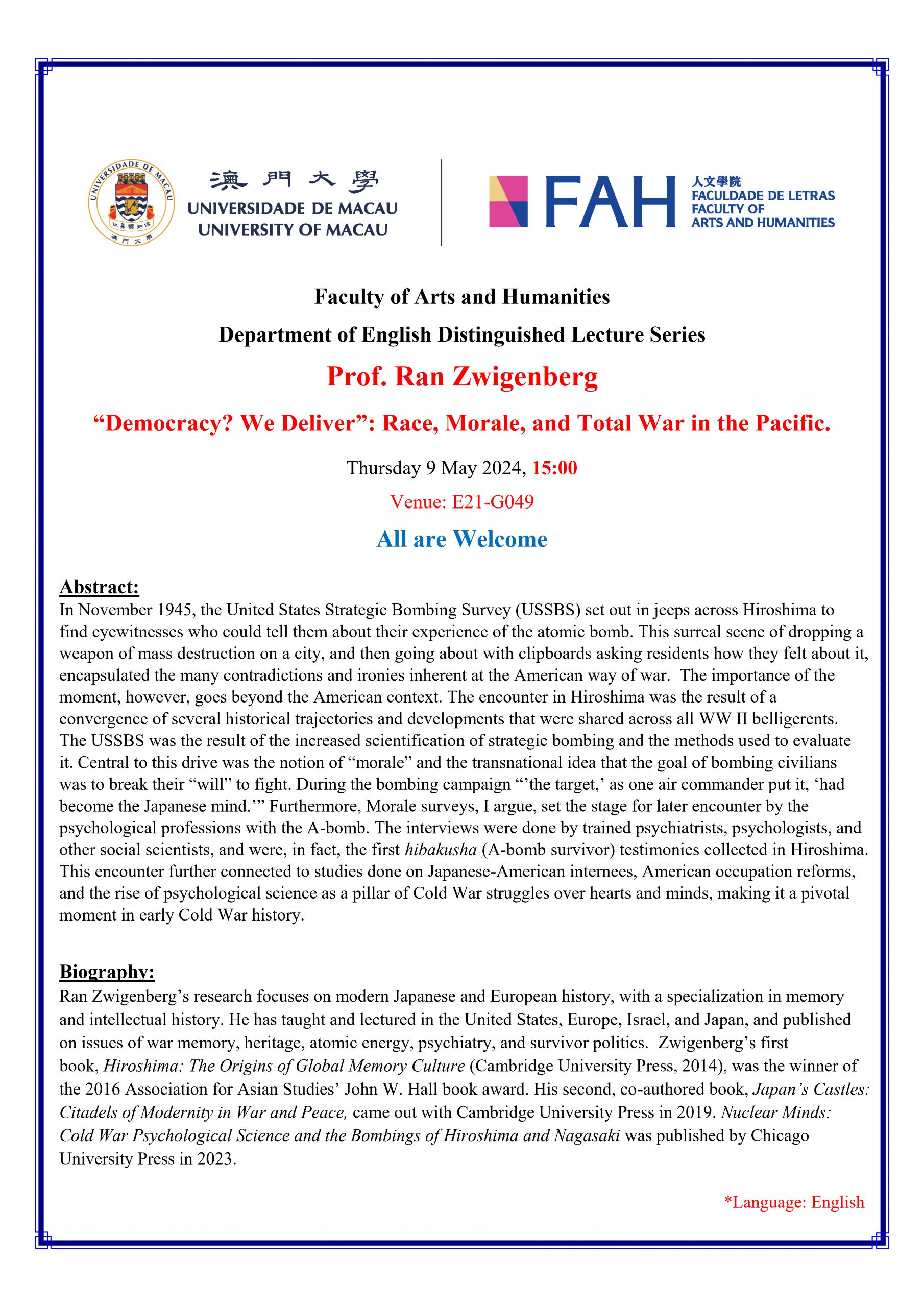

FAH-DENG Guest Lecture: ““Democracy? We Deliver”: Race, Morale, and Total War in the Pacific””
2024-05-09 @ 3:00 pm ~ 5:00 pm
Abstract:
In November 1945, the United States Strategic Bombing Survey (USSBS) set out in jeeps across Hiroshima to find eyewitnesses who could tell them about their experience of the atomic bomb. This surreal scene of dropping a weapon of mass destruction on a city, and then going about with clipboards asking residents how they felt about it, encapsulated the many contradictions and ironies inherent at the American way of war. The importance of the moment, however, goes beyond the American context. The encounter in Hiroshima was the result of a convergence of several historical trajectories and developments that were shared across all WW II belligerents. The USSBS was the result of the increased scientification of strategic bombing and the methods used to evaluate it. Central to this drive was the notion of “morale” and the transnational idea that the goal of bombing civilians was to break their “will” to fight. During the bombing campaign “’the target,’ as one air commander put it, ‘had become the Japanese mind.’” Furthermore, Morale surveys, I argue, set the stage for later encounter by the psychological professions with the A-bomb. The interviews were done by trained psychiatrists, psychologists, and other social scientists, and were, in fact, the first hibakusha (A-bomb survivor) testimonies collected in Hiroshima. This encounter further connected to studies done on Japanese-American internees, American occupation reforms, and the rise of psychological science as a pillar of Cold War struggles over hearts and minds, making it a pivotal moment in early Cold War history.
Biography:
Ran Zwigenberg’s research focuses on modern Japanese and European history, with a specialization in memory and intellectual history. He has taught and lectured in the United States, Europe, Israel, and Japan, and published on issues of war memory, heritage, atomic energy, psychiatry, and survivor politics. Zwigenberg’s first book, Hiroshima: The Origins of Global Memory Culture (Cambridge University Press, 2014), was the winner of the 2016 Association for Asian Studies’ John W. Hall book award. His second, co-authored book, Japan’s Castles: Citadels of Modernity in War and Peace, came out with Cambridge University Press in 2019. Nuclear Minds: Cold War Psychological Science and the Bombings of Hiroshima and Nagasaki was published by Chicago University Press in 2023.

